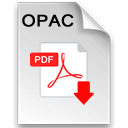<p>Los constantes desarrollos y relaciones culturales de las diferentes naciones del mundo han resultado en la formación de nuevas palabras –neologismos– los cuales afectan la forma en la cual se lleva a cabo la traducción como actividad. Esta tesis pretende dilucidar los parámetros éticos que gobiernan el proceso de toma de decisiones de los traductores a la hora de enfrentar textos en los cuales existen términos sin equivalentes establecidos en la lengua meta. De esta manera, el estudio presenta y analiza los conceptos en los cuales la neología natural se produce, para así contrastarlos con las tendencias presentadas por instituciones que ejercen influencia sobre el uso del lenguaje y la traducción, con las prácticas de ortología y planificación lingüística en relación a la temática de los neologismos. Estas tendencias naturales e institucionales son utilizadas para sentar las bases de una discusión sobre la ética de la traducción, en relación con el proceso de toma de decisiones de los traductores con los elementos ideológicos y axiológicos que ejercen influencia sobre ellos, como también la conceptualización del rol del traductor como autor y la traducción como reescritura. Las posibilidades del traductor para practicar la neología son evaluadas frente al uso natural del lenguaje, las relaciones de poder institucionales, la ética independiente y la ideología imperante</p>
<p>The constant cultural developments and relations between the different nations of the world have resulted in the formation of new words—or neologisms, which impact the way in which translation is conducted as an activity. This thesis attempts to elucidate the ethical parameters that govern translators’ decision-making process as they face texts in which there are terms with no established equivalents in the target language. In this sense, the study presents and analyzes the concepts in which natural neology plays a part, in order to contrast them with the tendencies presented by institutions that exert influence over the use of language and translation, with the practices of orthology and linguistic planning as they relate to the topic of neologisms. These natural and institutional trends are utilized to set the stage for a discussion on the ethics of translation in relation to to the decision-making process of translators, with regard to the ideological and axiological elements that exert influence over them, as well as the conceptualization of the role of the translator as an author and their translation as rewriting. The possibilities of the translator to engage in neology are evaluated vis-à-vis the natural use of language, institutional power relations, independent ethics and prevailing ideology</p>
last modification
Intérprete Inglés - Español
INTERPRETACION-TRADUCCION INGLES ESPAÑOL
<p>Los constantes desarrollos y relaciones culturales de las diferentes naciones del mundo han resultado en la formación de nuevas palabras –neologismos– los cuales afectan la forma en la cual se lleva a cabo la traducción como actividad. Esta tesis pretende dilucidar los parámetros éticos que gobiernan el proceso de toma de decisiones de los traductores a la hora de enfrentar textos en los cuales existen términos sin equivalentes establecidos en la lengua meta. De esta manera, el estudio presenta y analiza los conceptos en los cuales la neología natural se produce, para así contrastarlos con las tendencias presentadas por instituciones que ejercen influencia sobre el uso del lenguaje y la traducción, con las prácticas de ortología y planificación lingüística en relación a la temática de los neologismos. Estas tendencias naturales e institucionales son utilizadas para sentar las bases de una discusión sobre la ética de la traducción, en relación con el proceso de toma de decisiones de los traductores con los elementos ideológicos y axiológicos que ejercen influencia sobre ellos, como también la conceptualización del rol del traductor como autor y la traducción como reescritura. Las posibilidades del traductor para practicar la neología son evaluadas frente al uso natural del lenguaje, las relaciones de poder institucionales, la ética independiente y la ideología imperante</p>
<p>The constant cultural developments and relations between the different nations of the world have resulted in the formation of new words—or neologisms, which impact the way in which translation is conducted as an activity. This thesis attempts to elucidate the ethical parameters that govern translators’ decision-making process as they face texts in which there are terms with no established equivalents in the target language. In this sense, the study presents and analyzes the concepts in which natural neology plays a part, in order to contrast them with the tendencies presented by institutions that exert influence over the use of language and translation, with the practices of orthology and linguistic planning as they relate to the topic of neologisms. These natural and institutional trends are utilized to set the stage for a discussion on the ethics of translation in relation to to the decision-making process of translators, with regard to the ideological and axiological elements that exert influence over them, as well as the conceptualization of the role of the translator as an author and their translation as rewriting. The possibilities of the translator to engage in neology are evaluated vis-à-vis the natural use of language, institutional power relations, independent ethics and prevailing ideology</p>
